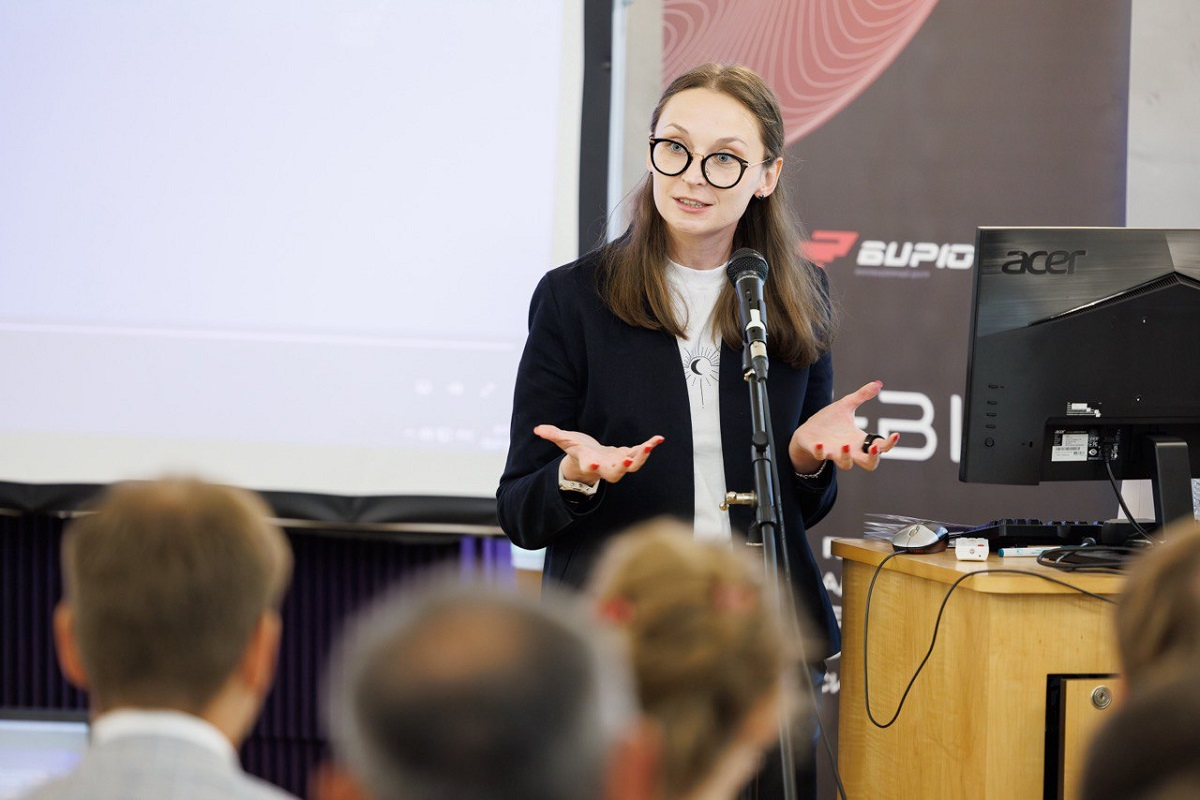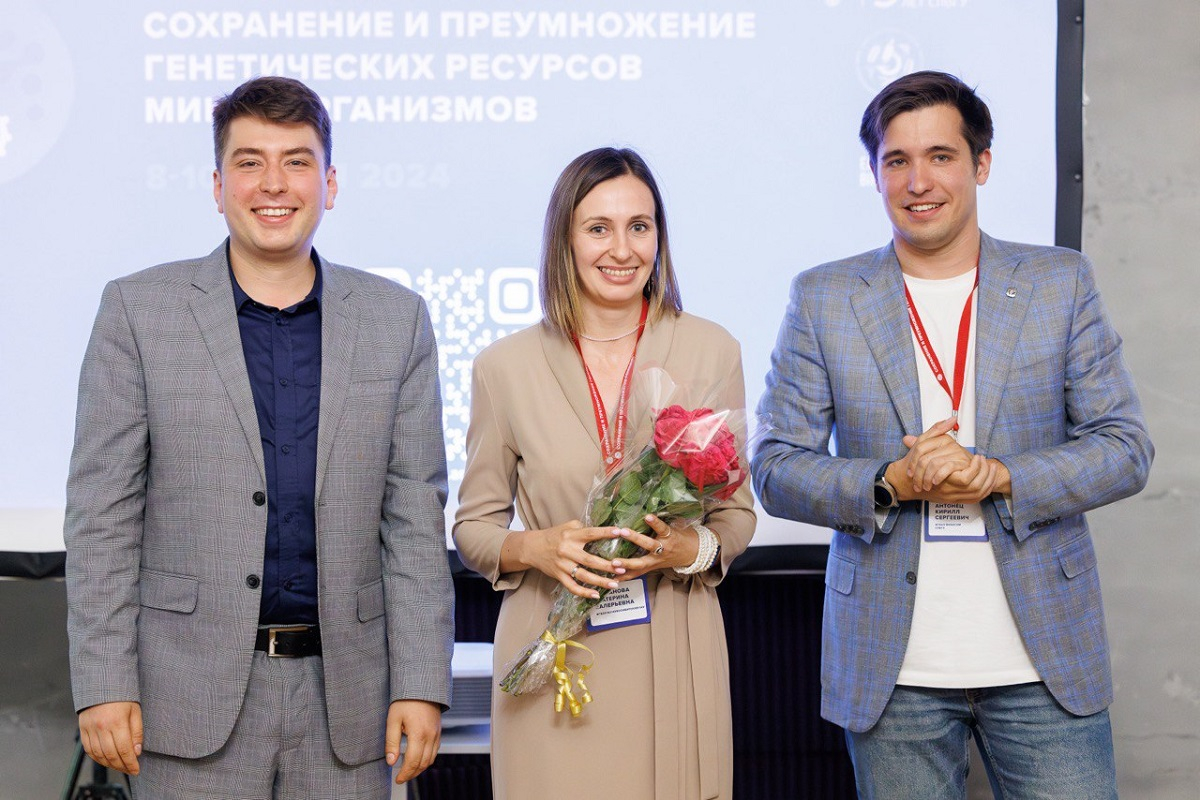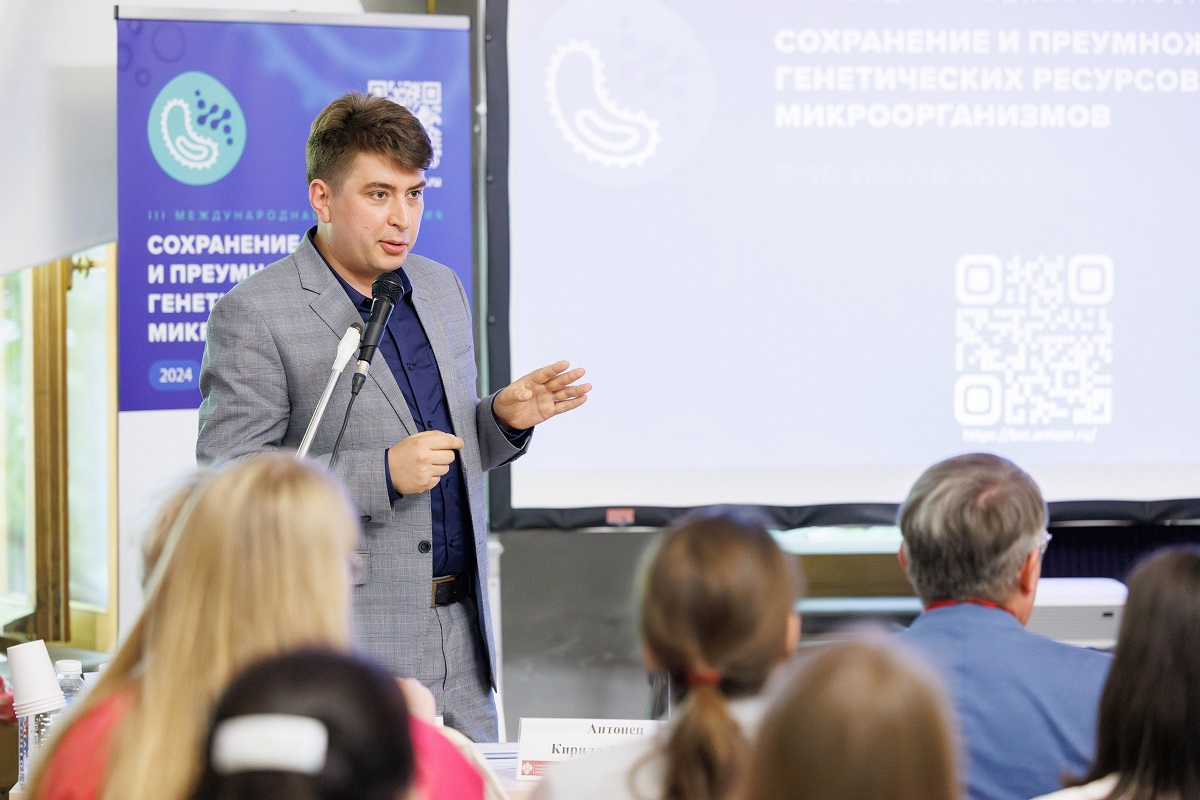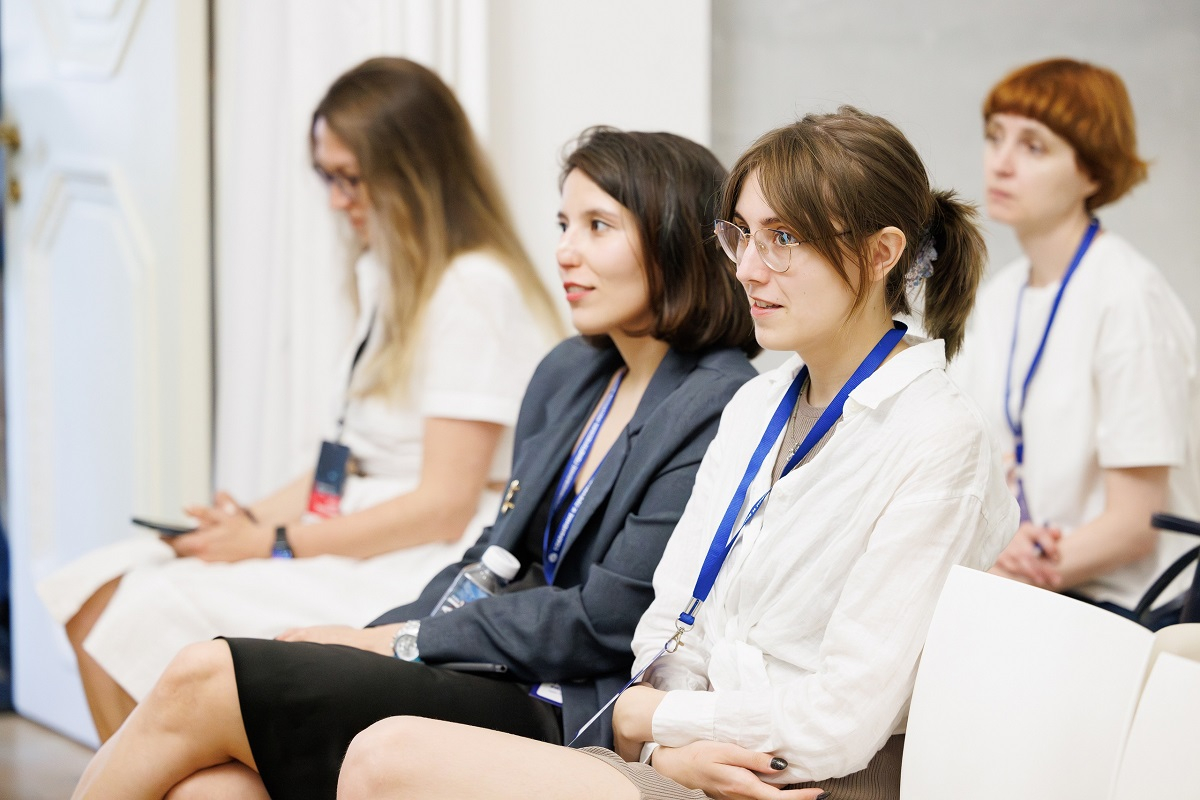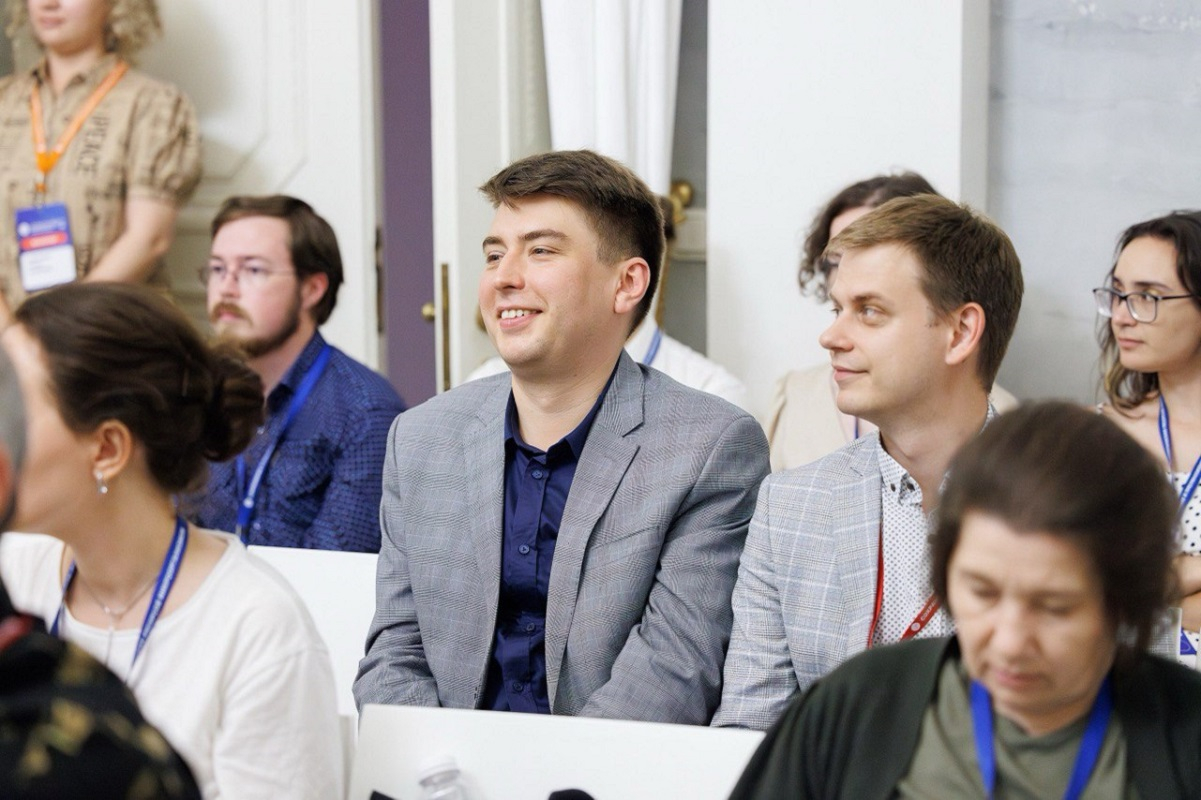To preserve and enhance: the conference on genetic resources of microorganisms at St Petersburg University is now international
The 3rd International Conference "Preservation and enhancement of genetic resources of microorganisms" has come to an end at St Petersburg University. The event marked the 300th anniversary of St Petersburg University.
Opening the conference, Anastasia Yarmosh, Senior Vice-Rector for Strategic Development and Partnership at St Petersburg University, delivered a welcoming speech. Three years ago, the event "Preservation and enhancement of genetic resources of microorganisms" was a school-conference, and three years later it became an international conference, she said.
Why is it important? Because genetic research is a priority in the scientific and technological policy of the Russian Federation. Today, genetics is closely related to health-preserving technologies, the development of pharmacology, environmental management, and agriculture. Genetic research helps strengthen the national system of import substitution and food security in Russia.
Anastasia Yarmosh, Senior Vice-Rector for Strategic Development and Partnership at St Petersburg University
According to Anastasia Yarmosh, Senior Vice-Rector for Strategic Development and Partnership at St Petersburg University, bioresource collections play an important role in genetic research. Today, St Petersburg University has more than 20 collections. Interestingly, the age of some samples exceeds the age of the University itself.
The bioresource collections at St Petersburg University are a unique source for studying biodiversity. Studying these samples, St Petersburg University annually publishes hundreds of papers in leading journals. They are essential to teach future biologists and to prepare graduation projects, candidate’s and doctoral dissertations.
Bioresource collections are important not only from the point of view of fundamental and applied science. For the last year and a half, experts in biology, genetics, and law at St Petersburg University have taken part in the preparation of the edition of the Federal Law "On bioresource centres and biological (bioresource) collections". The Federal Law project is aimed at ensuring the preservation and development of biological collections, the opening and operation of bioresource centres and their rational use in science, industry, agriculture, and ecology.
The expert group at St Petersburg University made a significant contribution to the development of the new federal law. It included our biologists and geneticists under the leadership of Igor Tikhonovich, Dean of the Faculty of Biology at St Petersburg University and Member of the Russian Academy of Sciences, and lawyers under the leadership of St Petersburg University Professor Nelli Diveeva. Importantly, all the changes proposed by the University experts have been accepted and taken into account in the latest version of the bill.
Anastasia Yarmosh, Senior Vice-Rector for Strategic Development and Partnership at St Petersburg University
It was St Petersburg University that originated the area of study that focuses on the interaction of microorganisms and plants, said Igor Tikhonovich, Dean of the Faculty of Biology at St Petersburg University, Scientific Director of the All-Russia Research Institute for Agricultural Microbiology, Member of the Russian Academy of Sciences.
"Everything that happens on Earth is determined by microorganisms. It was our graduate, our collaborator, Academician Sergei Kostychev (1877–1931), who drew attention to the fact that root secretions of plants provide a nutrient medium for microorganisms that form the plant microbiome", said Igor Tikhonovich. "I strongly advise all young scientists to connect their scientific life with microorganisms. They provide enormous opportunities for finding your place in science. By working with Petri dishes, microorganisms, and non-culturable species, we can find a way to solve complex problems in the bioeconomy. Be worthy of these tasks, be worthy of your educational institutions."
The 3rd international conference "Preservation and enhancement of genetic resources of microorganisms" was held with the support of the Ministry of Science and Higher Education of the Russian Federation under Agreement No 075-15-2021-1055 dated 28 September 2021.
More than a hundred researchers from Russia and friendly foreign countries took part in the conference in person, said Kirill Antonets, Chairman of the organising committee of the conference, a laureate of the President of the Russian Federation in the field of science and innovation for young scientists, Leading Research Associate at St Petersburg University and All-Russia Research Institute for Agricultural Microbiology. The programme included plenary sessions, a number of symposia, and partner events.
"It is very pleasing that more than 60% of the conference participants are young scientists," said Kirill Antonets. ‘The programme specifically focused on oral presentations by young people. The conference «Preservation and enhancement of genetic resources of microorganisms» is being held for the third time. This evidences how we can preserve a good tradition of holding the event at St Petersburg University, which is especially pleasant in the year of the 300th anniversary of the University. What is more is this is how we can increase the number of the positive qualities of this event, i.e. an increase in the number of and expanding the geography of participants, a larger (compared to previous events) number of reports, and an expanding of the scientific programme.’
Active work is currently underway to systematise the bioresource collections at St Petersburg University, accumulated over a long period of biological research at the University, said Anton Nizhnikov, Chairman of the scientific committee in the field of biological sciences and bioecology, Acting Head of the Department of Genetics and Biotechnology at St Petersburg University, Professor of the Russian Academy of Sciences. 'St Petersburg University pays great attention to working with a complex of bioresource collections, including collections of microorganisms, plants and animals in live breeding, and a number of special museum collections. A special section is represented by genetic collections. Most of the samples have been genetically characterised in great detail, including using whole-genome sequencing, i.e. a technology that makes it possible to read the sequence of a significant proportion of "letters" in the genome. These studies comply with the directions of the Strategy for Russia’s Scientific and Technological Development, approved by Executive Order of the President of the Russian Federation No 145 dated 28 February 2024,' added Anton Nizhnikov.
The conference "Preservation and enhancement of genetic resources of microorganisms" highlighted advanced areas of fundamental and applied research of microorganisms using current methods of genetics, microbiology, molecular biology, biotechnology, and bioresource collections. The event brought together researchers and students in the field of microbial genetics, microbiology, genomics, biotechnology and related disciplines from the Russian Federation and friendly foreign countries.


